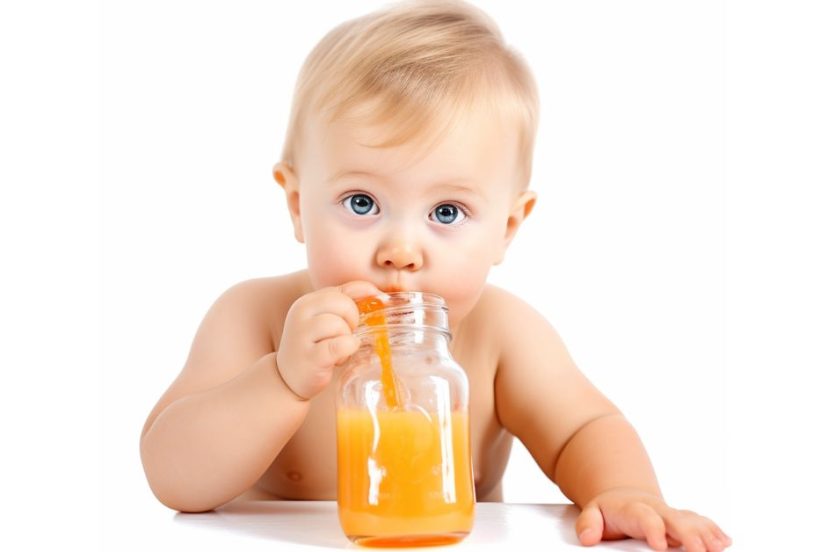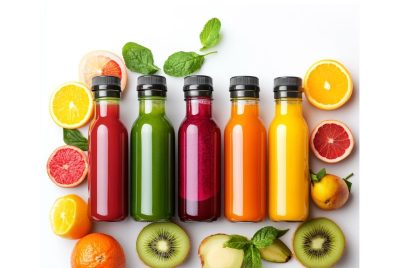When Can Babies Have Juice?
So when can babies have juice? – As a parent, you may wonder when it’s appropriate to introduce this healthy beverage into your little one’s diet. In this article, I will provide you with some suggestions and reasons based on what I have learnt.
Juice can play a vital role in a baby’s diet, offering essential nutrients and hydration. However, it’s important to consider various factors before introducing juice to your little one. Understanding the appropriate timing and considering their developmental milestones is crucial for their overall health and well-being.
When to Introduce Juice to Babies
The age at which you can introduce juice to your baby depends on several factors. Generally, it’s recommended to wait until your baby is around 12 months old before offering juice. By this age, their digestive system is more developed, and they have typically started consuming solid foods. However, it’s always a good idea to consult with your pediatrician for personalized guidance.
Health Benefits of Juice for Babies
Juice, when introduced at the right time and in appropriate quantities, can provide valuable health benefits to babies. It contains essential vitamins, minerals, and antioxidants that contribute to their growth and development. Additionally, juice can help keep them hydrated, especially during hot weather or when they’re unwell.
Types of Juice Suitable for Babies
When choosing juice for your baby, it’s important to opt for freshly squeezed juices whenever possible. Fresh juice ensures maximum nutritional value and minimizes the presence of additives or preservatives. If fresh juice is not available, select packaged juices specifically made for infants and check the ingredients carefully. Organic options can also be a healthier choice, as they are free from pesticides and harmful chemicals.
Diluting Juice for Babies
To ensure the appropriate intake of juice, it’s recommended to dilute it with water. Follow the recommended ratios provided by your pediatrician. Diluting juice not only helps manage the sugar content but also introduces your baby to the taste gradually. Additionally, it’s crucial to ensure that your baby continues to receive an adequate amount of water to maintain hydration.
Juice Intake Frequency
Moderation is key when it comes to juice intake for babies. Offer juice as a complement to their diet, alongside a variety of nutritious solid foods. Too much juice can lead to an imbalance in their overall nutrition and may affect their appetite for other essential foods. Strive for a balanced approach, where juice serves as a supplement rather than a primary source of nutrition.
Potential Risks and Precautions
While juice can have its benefits, it’s important to be aware of potential risks and take necessary precautions. Excessive juice consumption can contribute to dental health issues, such as tooth decay. Additionally, some babies may be prone to allergies or digestive issues when introduced to new foods, including juice. Carefully observe your baby’s reaction to juice and consult a pediatrician if any concerns arise.
Signs of Juice Intolerance
Every baby is unique, and some may have specific reactions or intolerances to certain foods, including juice. Monitor your baby’s reaction after introducing juice and be attentive to any signs of discomfort, such as digestive issues or rashes. If you notice any unusual symptoms, consult with your pediatrician to rule out any potential allergies or intolerances.
Best Practices for Introducing Juice to Babies
To introduce juice to your baby successfully, it’s advisable to start with small amounts. Begin with a few teaspoons and gradually increase the quantity over time. Observe how your baby reacts to juice, both in terms of taste preferences and any physical reactions. This gradual approach allows their taste buds to adapt and helps identify any potential issues early on.
Conclusion
In conclusion, introducing juice to babies can be a beneficial addition to their diet when done correctly and at the appropriate time. Juice offers essential nutrients and hydration, supporting their growth and development. By following the guidelines provided, including diluting juice, practicing moderation, and being attentive to any signs of intolerance, you can ensure a positive and healthy juicing experience for your little one.
FAQs (Frequently Asked Questions)
- Is it safe to give juice to a newborn baby?
It’s not recommended to give juice to newborn babies. Wait until your baby is around 12 months old before considering the introduction of juice, and always consult with your pediatrician for personalized advice. - Can I give my baby any type of juice?
It’s best to opt for freshly squeezed juices whenever possible. If fresh juice is not available, choose packaged juices specifically made for infants, and read the labels carefully to ensure they are suitable for your baby’s age. - How much juice can I give my baby per day?
Moderation is key. Offer juice as a complement to their diet and limit the intake to small quantities, following the recommended ratios provided by your pediatrician. - What are the signs of juice intolerance in babies?
Signs of juice intolerance may include digestive issues, such as diarrhea or stomach discomfort, as well as skin rashes or other allergic reactions. If you notice any unusual symptoms, consult your pediatrician for further evaluation. - Can juice replace water for my baby’s hydration needs?
No, juice should not replace water in your baby’s hydration routine. Ensure your baby continues to receive an adequate amount of water to maintain hydration alongside the introduction of juice.
Additional resources and links:
- “Fruit Juice in Infants, Children, and Adolescents: Current Recommendations” – This link leads to the American Academy of Pediatrics’ official guidelines on fruit juice consumption in infants, children, and adolescents.
- American Academy of Pediatrics (AAP) – Official website: www.aap.org
- Centers for Disease Control and Prevention (CDC) – Official website: www.cdc.gov




